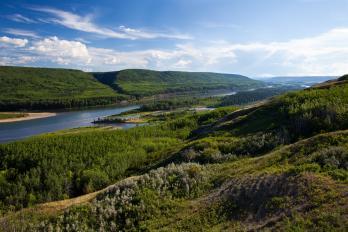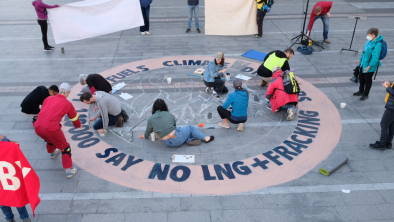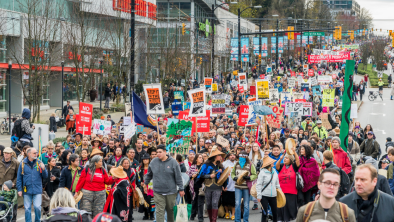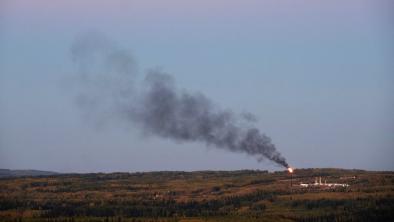BC energy policies bad for both taxpayers and environment

The BC government is moving full steam ahead with the costly and destructive Site C Dam, even as BC Hydro is facing serious financial issues due to government mismanagement.
Last week the Auditor General released a report calling the government’s accounting methods at BC Hydro into question. It brought to light the billions of dollars of debt Hydro is hiding in “deferral accounts” to inflate profits and funnel money back to the BC government. This hidden debt is expected to rise to $5 billion by 2017.
Despit all this bad news the government still wants to go ahead with the $8 billion Site C project.
Government policies supported so-called "run of rivers" projects have in fact already ruined many rivers and streams across BC. And we are heading further down the wrong track, with a policy that will invest billions of dollars to build a mega-dam that will flood one of the most special places in the province to provide cheap energy to dirty industry.
Originally touted as a “green and clean” solution to the province’s residential power rates, it is becoming increasingly clear that the Site C Dam is about providing cheap energy to dirty industries. Coal mines, gas fracking, and liquefied natural gas proposals are popping up all over northern BC creating new demand for electricity while destroying vast tracks of wilderness.
The current cost of building Site C will be $87 to $95 per Megawatt hour (MWH). Astoundingly, industry will be paying less than half that rate. Current industrial rates are just $40 per MWH. Why should BC taxpayers subsidize huge profitable corporations such as Encana and Shell by building Site C?
The BC government is on the brink of bankrupting our public utility and putting billions of dollars of public money in private hands. In the process, they want to flood the best agricultural land in northern BC, as well as boreal forest and critical habitat for many species at risk.
The Site C Dam is in the first stage of a joint panel review environmental assessment process. Without the proper oversight, which used to be provided by the watchdog organization known as the BC Utilities Commission, the decision making process will not look into the larger issues of the impact that building Site C will have on taxpayers.
Without regional planning, the subsidized energy provided by Site C will fuel reckless development all over northern BC, which will further impact critical caribou habitat and lead to tonnes of new greenhouse gas emissions.
Tria Donaldson | Campaigner
Wilderness Committee


